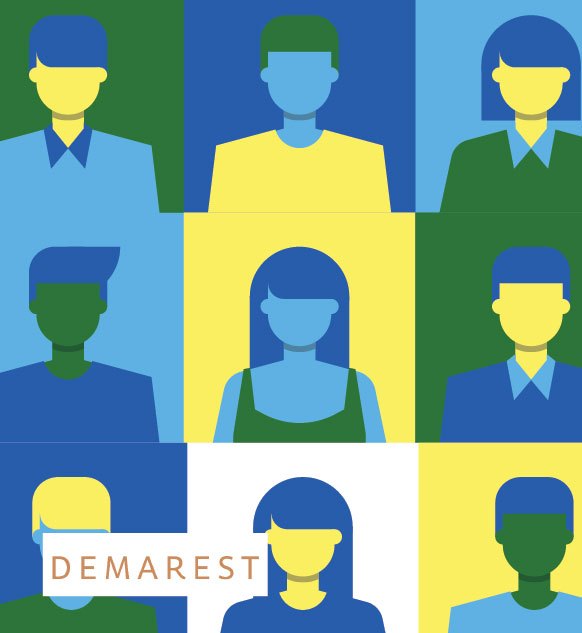I admit that when I first discussed the opportunity of joining Demarest, I was surprised by their approach and by the interest from one of the leading local – and most traditional – Brazilian law firms in bringing on board a foreign lawyer with an international career. It is true that I had been in Brazil, spearheading the LATAM project of one of the most prominent Iberian law firms and that, in a short space of time, I had gained a good positioning among foreign European investors for their regional interests. It took little time to realise that their initiative was part of a well-planned strategy and a clear bet on cultural diversity, which has proven very successful for both the firm and its clients.
This is a rare characteristic in a country (and region) where it is not very common to have fully institutionalised firms (i.e. not dependent on one individual or small group of individuals, such as the founding partners, name partners, or current managing partners). Indeed, Demarest had successfully overcome a very well-driven generational succession that led to a refurbished modern firm with clear objectives and a very interesting open-minded approach to the way they could best serve clients.
Clients have to face increasingly sophisticated and global challenges that occur in different markets. To attend their needs and be able to adjust to the demanding specialised counsel that they require calls for the capacity to understand their concerns and multi-faceted implications from a global, regional, and local perspective. Brazil is a prominent market in the international business arena and it is connected with most of the other business hubs worldwide. Its players expect advisors with a cultural and geopolitical background that helps them spot and understand the opportunities and risks of this playing field, when compared to other alternative markets.
An organisation becomes, in reality, an international reference not only for having a physical presence abroad or attending foreign clients, but also, and most importantly, for including in its ranks qualified and experienced professionals with different backgrounds. Acknowledging this fact, clients have also incorporated this multicultural diversity factor when configuring their teams, especially those tasked with expanding into new markets or simply those operating outside of their homeland. They understand that it is in this way that they achieve higher levels of competitiveness and dynamism. Professional service firms in general, and law firms in particular, need to keep up with this trend to be able to connect with the clients’ representatives and deliver up to their high standards based on best international practices.
Demarest is no different. In fact, they were pioneers in this regard. By the time I joined, several other international lawyers had already been trained and had made partnership within the firm. This allows a differentiated value proposition for clients that receive, alongside the legal advice that they seek, a highly empathetic service based on a better understanding and capacity to explain (and anticipate) their needs and in navigating the requirements and pitfalls of a different business environment.
Another driver to support this multicultural policy lies in the so-called ‘war for talent’. In such a battle, the capacity to offer a project and working environment with different personal and cultural profiles, in a well-integrated team of in-house developed and lateral hires, means a more attractive opportunity for new talent who seek enriching experiences.
Typically, M&A lawyers interface between foreign investors and the local entrepreneurs and business owners, contributing to the development and modernisation of the local market. However, we are also known to follow the opposite path, guiding local investors when expanding abroad. Lawyers and firms need to be well informed and prepared to explain, or at least understand, the main characteristics of investment source and destination markets, so that we can guide clients to make the proper connections. Often, decisive factors in the early stage of a successful international plan go beyond the technical knowledge of each specific legal system, and are, therefore, more dependent on properly understanding the cultural characteristics of doing business.
Nevertheless, not all organisations are ready and willing to integrate diverse talent. Achieving a cultural fit is difficult and, oftentimes, failure to acknowledge and integrate such cultural awareness ruins bold and well-intended projects. It is not uncommon for law firms, in many cases traditional organisations averse to change, to encounter endogenous cultures that, necessarily, entail overcoming complex difficulties related to integration and ‘otherness’, proving an even harder to overcome challenge than initially thought. Also, the adaptation factor of the individual is uncertain. Many successful lawyers that once shone in a given organisation fail to measure the size of the challenge they face when changing firms, compromising the quality of service due to a lack of the required flexibility.
At Demarest, my experience, as well as several others, is evidence of our belief in diversity (in all aspects, including cultural) to be solid and aligned with the strategy. This has afforded me a smooth and successful integration and has benefitted the firm with diverse views and experiences, culminating in many initiatives that have enriched the organisation. But most of all, the firm’s strategy and adherence to cultural diversity has benefitted our clients through a value proposition with a unique approach, that has ultimately translated into tangible results.

